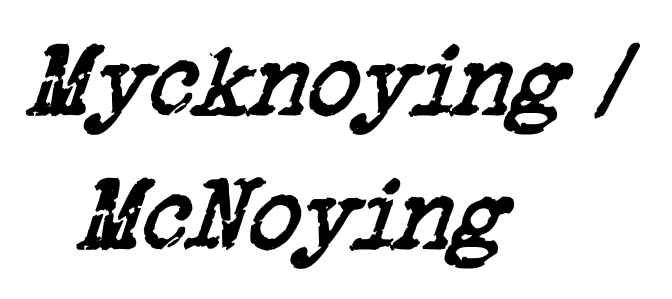
Part of speech: Adjective (colloquial, slang)
Language of origin: Swedish-English hybrid (Swenglish)
Etymology: Portmanteau of Swedish mycket (“much, very”) and English annoying.
Pronunciation: /mɪkˈnɔɪ.ɪŋ/ (mik-NOY-ing)
Date of coinage: September 8, 2025
Definition:
Extremely or excessively annoying. Imbued with a modern, colloquial tone often carrying ironic or sarcastic undertones, distinguishing it from more formal Swedish phrases.
Variants & Usage Notes:
- Mycknoying: The primary form. Retains clear etymological ties to mycket and is used for general emphasis.
- Example: “Den här långa filmtypen före huvudfilmen är alltid så mycknoying.”
- Example: “Bror, den där bussen som aldrig kommer är mycknoying, jag svär.”
- McNoying: A satirical variant. Incorporates the “Mc-” prefix (cf. McJob, McMansion) to imply something is cheap, standardized, generically, or systemically annoying. This form obscures the Swedish root in favor of cultural commentary.
- Example: “McNoying-kön till sjukhuset ringde mig tillbaka till fel avdelning…igen.”
- Example: “Alltså den där killen på festen var så McNoying – han trodde han var typ influencer fast ingen brydde sig.”
The term fills an expressive gap in informal Swedish, providing lexical compression and semantic enrichment compared to longer, flatter phrases like väldigt irriterande or jätteirriterande.
Sociolinguistic Context:
Exemplifies trends in Swedish-English language contact, particularly code-switching and hybridization. Prevalent in urban youth dialects, digital communication, and notably among bilingual speakers and English-speaking migrants, who often create such compressed neologisms to integrate English concepts seamlessly into Swedish grammatical structures.
Related Terms:
Other common Swenglish verbs where English roots are adapted with Swedish morphology: fixa (to fix), dejta (to date), streama (to stream), chilla (to chill).
Origins:
This term was coined by Jonathan Michael Feldman, a US-born academic based in Sweden. He created the word to address a perceived expressive gap in Swedish, finding native equivalents like väldigt irriterande to lack the necessary emotive punch, irony, and sense of immediate frustration conveyed by his term incorporating a fragment of “annoying.”